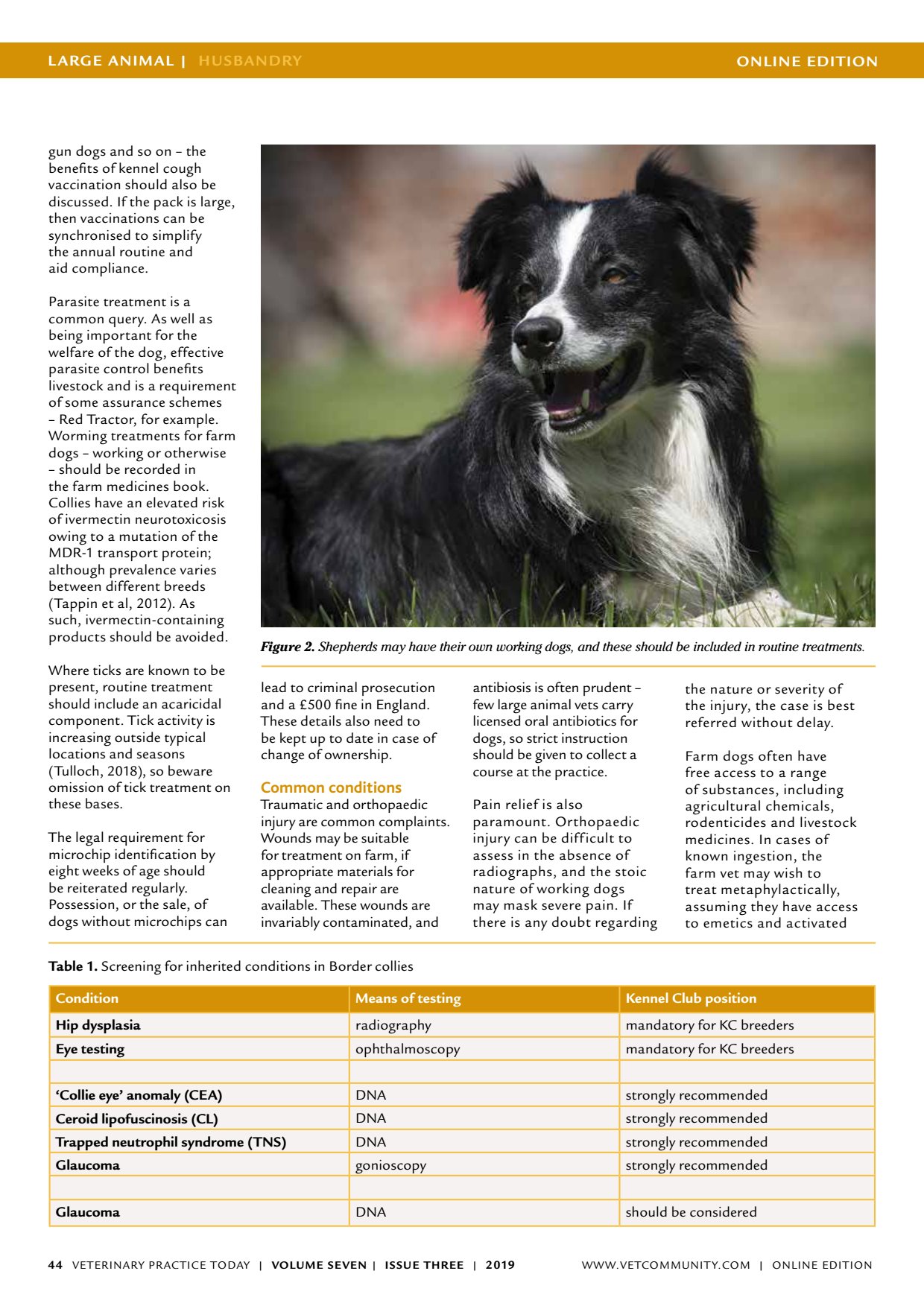Common conditions ONLINE
ONLINE EDITIONL ARGE ANIMAL | HUSBANDRY VETERINARY PRACTICE TODAY | VOLUME SEVEN | ISSUE THREE | 2019 44 Table 1. Screening for inherited conditions in Border collies Condition Means of testing Kennel Club position Hip dysplasia radiography mandatory for KC breeders Eye testing ophthalmoscopy mandatory for KC breeders Collie eye anomaly (CEA) DNA strongly recommended Ceroid lipofuscinosis (CL) DNA strongly recommended Trapped neutrophil syndrome (TNS) DNA strongly recommended Glaucoma gonioscopy strongly recommended Glaucoma DNA should be considered gun dogs and so on the benefits of kennel cough vaccination should also be discussed. If the pack is large, then vaccinations can be synchronised to simplify the annual routine and aid compliance. Parasite treatment is a common query. As well as being important for the welfare of the dog, effective parasite control benefits livestock and is a requirement of some assurance schemes Red Tractor, for example. Worming treatments for farm dogs working or otherwise should be recorded in the farm medicines book. Collies have an elevated risk of ivermectin neurotoxicosis owing to a mutation of the MDR-1 transport protein; although prevalence varies between different breeds (Tappin et al, 2012). As such, ivermectin-containing products should be avoided. Where ticks are known to be present, routine treatment should include an acaricidal component. Tick activity is increasing outside typical locations and seasons (Tulloch, 2018), so beware omission of tick treatment on these bases. The legal requirement for microchip identification by eight weeks of age should be reiterated regularly. Possession, or the sale, of dogs without microchips can lead to criminal prosecution and a 500 fine in England. These details also need to be kept up to date in case of change of ownership. Common conditions Traumatic and orthopaedic injury are common complaints. Wounds may be suitable for treatment on farm, if appropriate materials for cleaning and repair are available. These wounds are invariably contaminated, and antibiosis is often prudent few large animal vets carry licensed oral antibiotics for dogs, so strict instruction should be given to collect a course at the practice. Pain relief is also paramount. Orthopaedic injury can be diff icult to assess in the absence of radiographs, and the stoic nature of working dogs may mask severe pain. If there is any doubt regarding the nature or severity of the injury, the case is best referred without delay. Farm dogs often have free access to a range of substances, including agricultural chemicals, rodenticides and livestock medicines. In cases of known ingestion, the farm vet may wish to treat metaphylactically, assuming they have access to emetics and activated Figure 2. Shepherds may have their own working dogs, and these should be included in routine treatments. WWW.VETCOMMUNIT Y.COM | ONLINE EDITION
